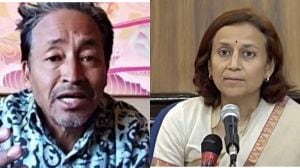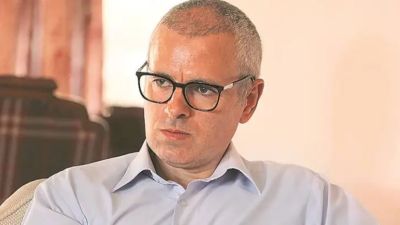Bombay HC junks plea seeking ban on Indian citizens and firms from hiring Pakistani artists
The Bombay HC said the petitioner had sought relief regarding the framing of policy and the court can’t direct the legislature to frame it in a particular manner
 The court said that while it was not banning bursting of firecrackers, it was for state government to consider measures in view of earlier judgements of the National Green Tribunal (NGT) and the Supreme Court on the same. However, some limit has to be put in place, the bench said. (File)
The court said that while it was not banning bursting of firecrackers, it was for state government to consider measures in view of earlier judgements of the National Green Tribunal (NGT) and the Supreme Court on the same. However, some limit has to be put in place, the bench said. (File) The Bombay High Court recently dismissed a plea seeking direction to the Centre to impose a complete ban on Indian citizens and companies from employing or soliciting any work or performance and services or entering into any association with Pakistani artists.
A division bench of Justice Sunil B Shukre and Justice Firdosh P Pooniwalla said the plea seeking such reliefs is a “retrograde step in promoting cultural harmony, unity, and peace and has no merit in it”. The bench said the petitioner had sought relief regarding framing of policy and the court cannot direct the legislature to frame it in a particular manner.
The bench pointed out that the Pakistan cricket team is taking part in the present Cricket World Cup being held in India because of “appreciable positive steps” by the Central Government in the interest of “peace and harmony as per Article 51 of the Constitution about the promotion of international peace and security”. If such a plea is to be entertained, it would set as nought the positive initiatives taken by Centre, the bench noted.
On October 17, Justice Shukre, who is set to retire on October 24, and Justice Pooniwalla had passed an order in a plea by Faaiz Anwar Qureshi who had sought a direction to the Union Ministry of Home Affairs (MHA), Ministry of External Affairs (MEA), and the Ministry of Information and Broadcasting to issue appropriate statutory notifications to ban Indian citizens or firms engaging with Pakistani artists including cine workers, singers, musicians, lyricists, and technicians.
Qureshi, through advocate Vibhav Krishna, had also sought directions including a prohibition on granting of visas to Pakistani artists asking the MHA to take strict penal and preventive action for non-compliance with the ban. He had also sought direction to the state police authorities to extend full cooperation in taking strict actions.
Qureshi referred to past decisions of ban or warnings issued by various organisations of cine artists in India including the All Indian Cine Workers Association (AICWA), Indian Motion Pictures Producers Association (IMPPA) and the Federation of Western India Cine Employees (FWICE), and MNS Cinema Wing against hiring Pakistani artists.
Krishna argued Qureshi is a “true patriot” and, therefore, sought the reliefs, which if not granted, would lead to discrimination against Indian artists and cine workers.
The petitioner apprehended the permission for the Pakistan cricket team to play in the ongoing WC in India, will be misused by various persons to invite Pakistani artists under the guise of sports, resulting in a threat to job opportunities for Indian artists.
However, the bench held the petitioner’s “perception of patriotism and understanding of the concept of fundamental rights was completely misplaced”.
“One must understand that in order to be a patriot, one need not be inimical to those from abroad, especially, from the neighbouring country. A true patriot is a person who is selfless, who is devoted to the cause of his country, and which he cannot be unless he is a person who is good at heart.”
The bench also noted, “A person who is good at heart would welcome in his country any activity which promotes peace, harmony, and tranquillity within the country and across the border, Arts, music, sports, culture, dance and so on are the activities which rise above nationalities, cultures and nations and truly bring about peace, tranquillity, unity and harmony in nation and between nations”.
The bench also held the resolutions of non-statutory organisations of cine workers cannot be sought to be translated in notifications by governmental authorities at the behest of the court.
“We may further state here these bans and such threats, if true, would agitate against the fundamental right guaranteed under Articles 19 (1) (a) (freedom of speech), 19 (1) (g) ( to practice any profession, trade) and 21 (Right to personal liberty) of the Constitution and therefore, they would be manifestly illegal.”







